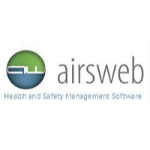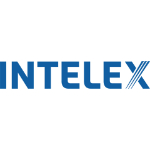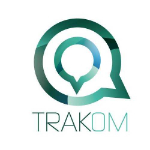TechnologyCounter provides genuine, unbiased real user reviews to help buyers make informed decisions. We may earn a referral fee when you purchase through our links, at no extra cost to you.
List of 15 Best Safety Management Software
Showing 1 - 15 of 31 productsAirsweb the efficient and user-friendly software for all your health, safety, and environmental management needs. Streamline your processes, increase productivity, and ensure compliance with ease using our innovative solution. Trust Airsweb to revolu...Read Airsweb Reviews
EHS Insight is the powerful workplace management solution designed to revolutionize the way organizations handle environmental, health, and safety initiatives. With user-friendly features and unmatched functionality, EHS Insight empowers businesses t...Read EHS Insight Reviews
Intelex is a leading software company that specializes in providing innovative solutions for businesses to thrive in todays fast-paced digital world. With a wide range of customizable software options, Intelex helps companies streamline their operati...Read Intelex Reviews
Cority EHS is a top-rated software that has revolutionized the way companies manage their environmental, health, and safety processes. With its advanced technology and user-friendly interface, Cority EHS has become the leading choice for organization...Read Cority EHS Reviews
eCompliance EHS is a software designed to streamline and enhance your organizations Environmental, Health and Safety processes. From risk management to incident reporting, eCompliance EHS offers a user-friendly is a solution to ensure compliance and...Read eCompliance EHS Reviews
SafetyCulture is a user-friendly platform that offers a customizable is a solution for workplace safety and quality management. It provides businesses with the necessary tools to identify hazards, report incidents, and implement corrective actions, a...Read SafetyCulture Reviews
Quentic is the leading software for sustainability, health and safety, and environmental management. With its user-friendly platform, Quentic helps businesses streamline their processes, track compliance, and promote sustainable practices. With a ran...Read Quentic Reviews
SafetyNet is a tool designed to keep you and your loved ones safe. With its advanced features interface, SafetyNet provides a seamless experience for ensuring your security. From real-time monitoring to emergency alerts, SafetyNet is a solution for p...Read SafetyNet Reviews
EHS Hero is a software solution for all your Environmental, Health, and Safety needs. With its advanced features and user-friendly interface, EHS Hero streamlines your operations and provides a seamless experience for managing safety protocols. Trust...Read EHS Hero Reviews
ConvergePoint EHS is an all-in-one software solution designed to help businesses manage their environmental, health, and safety (EHS) compliance. With a user-friendly interface and a wide range of features, ConvergePoint EHS streamlines the EHS manag...Read ConvergePoint EHS Reviews
Sarvang Safety is revolutionizing the world of safety management with its advanced software designed to enhance workplace safety. With a focus on efficiency and effectiveness, Sarvang Safety helps businesses of all sizes ensure the well-being of thei...Read Sarvang Safety Reviews
Trakom - Asti is a software designed to streamline and optimize business operations. Leveraging advanced technology features, Trakom - Asti offers a seamless is a management system for various industries. From inventory management to customer relatio...Read Trakom - Asti Reviews
Safetyminder is a safety solution for businesses of all sizes. With its advanced technology and user-friendly interface, Safetyminder is revolutionizing the way companies ensure the safety of their employees and assets. From risk management and incid...Read Safetyminder Reviews
ExESS is a and versatile software designed to simplify and streamline the management of vital safety data for various industries. With its user-friendly interface and innovative features, ExESS is a solution for businesses looking to efficiently navi...Read ExESS Reviews
Safetymint is a digital safety management software that is designed to assist organizations of any size in streamlining and improving their safety processes. By utilizing our cloud-based platform, Safetymint helps businesses digitize their safety pr...Read Safetymint Reviews
- What Is Safety Management Software?
- Top Reasons Why Businesses Need Safety Management Software?
- What Are the Top Key Features of Safety Management Software?
- What Are the Top Benefits of Safety Management Software?
- What Are the Steps to Choose the Right Safety Management Software?
- What Are the Types of Safety Management Software for Different Industries?
- What Are the Technology Trends for Best Safety Management Software?
- What Are the Deployment Options for Safety Management Software?
What Is Safety Management Software?
Safety management software is a digital application designed to enhance an organization's ability to effectively manage and mitigate hazards associated with workplace safety. Tracking safety initiatives, accidents, injuries, and possible risks can contribute to the maintenance of up-to-date safety measures.
Additionally, an online safety management system can serve as a central repository for safety documentation, training materials, hazard assessment data, and safety processes. This particular software has been specifically developed to be utilized over the entirety of the safety life cycle. Initially, companies have the capability to monitor and assess safety goals and objectives.
By employing cloud-based safety management system software, firms are able to consistently evaluate their safety policies and make necessary updates in order to align with the most up-to-date best practices. The best safety software additionally facilitates the monitoring of safety initiatives, storage of safety-related paperwork, and provision of employee training on safe practices for management.
Furthermore, safety management tools has the capability to not only monitor safety activities, but also to record workplace events and identify possible hazards. The utilization of this tool enables organizations to effectively detect potential hazards and promptly develop strategies to mitigate them.
In the occurrence of an incident, the software can be employed to document the particulars of the incident and guarantee adherence to all safety protocols. The utilization of the best safety management software has the potential to enhance safety management protocols within organizations, hence mitigating the likelihood of occupational injuries and illnesses.
Additionally, an online safety management system has the potential to optimize administrative procedures and enhance efficiency in the training and supervision of employee safety measures.
Top Reasons Why Businesses Need Safety Management Software?
1. In order to mitigate the financial burdens associated with occupational accidents and injuries.
2. In order to guarantee adherence to workplace safety rules.
3. The purpose of the cloud-based safety management system software is to establish a streamlined and structured method for recording and monitoring safety-related tasks.
4. In order to assist businesses in identifying safety concerns and implementing measures to alleviate them.
5. The objective is to provide an automated system for the gathering and reporting of safety data.
6. In order to facilitate the prompt and precise transmission of safety information and documentation.
7. In order to enhance the execution of safety rules and standards.
8. In order to facilitate the monitoring of training and certification prerequisites for personnel within organizations.
9. In order to guarantee the adequate degree of readiness and effectiveness in emergency preparedness and response.
10. In order to foster a culture of open communication regarding safety within the workforce.
11. The primary objective is to furnish precise and prompt analytics for the purpose of evaluating safety performance.
12. The purpose of monitoring is to ensure adherence to safety standards and initiatives.
13. The objective is to provide mobile and cloud-based systems that ensure optimal accessibility for all employees.
14. The purpose of this initiative is to enable safety officials to promptly address occurrences by conducting real-time reviews.
15. In order to facilitate the ongoing enhancement of safety processes and procedures.
What Are the Top Key Features of Safety Management Software?
1. Automated Risk Tracking: Safety management software facilitates the monitoring of both internal and external risk variables across various programs inside organizations. This enables the organization to more accurately identify possible hazards and formulate an efficient strategy for risk reduction.
2. Safety Performance and Compliance Monitoring: Cloud-based safety management system software has the capability to continuously monitor safety performance and ensure adherence to pertinent rules, laws, policies, and procedures in real-time. This practice guarantees the continuous adherence to safety standards.
3. Hazard Identification and Assessment: The best safety management tools enable organizations to efficiently and effectively detect possible threats. Additionally, the program aids in evaluating the magnitude of the risk presented by these hazards and then determining the order of importance for implementing appropriate responses.
4. Hazard Reporting and Control: Safety management system software facilitates the expeditious and effective documentation of potential safety hazards and the implementation of requisite control measures by enterprises. This practice aids in the precise identification and continuing control of risks.
5. Incident and Accident Management: The online safety management system plays a crucial role in facilitating the examination and administration of occurrences and accidents. This encompasses the process of documenting event details, evaluating responsibility and legal obligations, and implementing appropriate measures for rectification.
6. Auditing and Training: Safety management software is a tool that facilitates the strategic organization, preparation, and implementation of safety audits. Additionally, it aids in the development and implementation of safety-oriented training initiatives for staff members.
What Are the Top Benefits of Safety Management Software?
1. Improved Incident Tracking: Safety management tools facilitates the real-time monitoring of incidents within businesses, providing comprehensive documentation of actions and investigations.
2. Automation of Administrative Tasks: Safety management system software has the capability to automate reminders for mandatory safety inspections, audits, and incident reports, thereby enabling enterprises to minimize the amount of time dedicated to administrative duties.
3. Reduced Liability and Risk: The utilization of the best safety management software can effectively facilitate adherence to relevant safety requirements, hence mitigating the potential for legal responsibility.
4. Benchmarking and Reporting: Organizations can leverage cloud-based safety management system software to effectively assess safety performance in comparison to industry peers and acquire valuable insights for enhancing safety protocols.
5. Easy Access to Relevant Documentation: The best safety software streamlines the process of retrieving safety-related materials, including manuals and protocols, hence enhancing accessibility and ease of use.
6. Improved Communication and Collaboration: Safety management system software facilitates efficient collaboration and communication among safety professionals, staff members, and other third-party stakeholders.
7. Improved Training: The online safety management system is a valuable tool that may be utilized to develop effective training programs and onboarding procedures, hence facilitating compliance with safety standards.
8. Heightened Awareness: Safety management software is a valuable tool for enhancing, monitoring, and maintaining safety consciousness among employees and other relevant parties.
What Are the Steps to Choose the Right Safety Management Software?
1. Establish your organization's safety management goals: It is imperative to initially set the safety management goals of your firm. Please provide detailed specifications regarding the desired safety features that the online safety management system should encompass, as well as the ways in which it is expected to enhance safety operations inside your firm.
2. Research and evaluate the existing safety software solutions: After determining the desired safety objectives, it is advisable to conduct thorough study and assessment of the best safety software solutions that are currently accessible in the market.
Conduct a comparative analysis of several items to ascertain their compliance with the safety standards mandated by your firm.
3. Analyze your organization’s needs: Evaluate the safety requirements of your firm and assess the features of the program in relation to these criteria. This encompasses various functionalities, including but not limited to data collecting, reporting, workflow management, and analytics.
4. Evaluate the software’s user-experience and features: Please evaluate the software's user experience and determine its appropriateness for your organization. Conduct a comprehensive assessment of the user interface and appraise its features to ascertain their compliance with safety requirements.
5. Assess the scalability and compatibility of the software: This study aims to analyze the scalability and compatibility of the online safety management system. One should carefully evaluate the potential utilization of the software in various contexts, taking into account the specific locations and methods of implementation.
Additionally, a thorough assessment should be conducted to determine the compatibility of the program with the existing hardware and other software systems employed inside the organization.
6. Conduct a cost-benefit analysis: After identifying a software solution that aligns with the safety criteria of the organization, it is advisable to perform a cost-benefit analysis in order to ascertain the viability of investing in said software.
7. Test the software: Prior to implementing the best safety software within your firm, it is imperative to do a thorough evaluation to ascertain its compliance with safety standards and alignment with your objectives. By adhering to the aforementioned stages, one should be capable of discerning the appropriate safety management solution for their firm.
What Are the Types of Safety Management Software for Different Industries?
There are various types of best safety management software available for different industries, including chemical, construction, manufacturing, healthcare, transportation, and more.
1. Chemical Industry: Chemical safety management tools facilitate the monitoring of adherence to environmental legislation and safety requirements. The system offers automated notifications for activities that may pose a risk, measures taken to prevent such risks, and other safety-related functionalities.
2. Construction Industry: The utilization of construction safety management software has the potential to mitigate the occurrence of accidents and injuries inside construction sites. The program possesses the capability to monitor and assess safety training adherence and compliance in accordance with established industry norms.
Furthermore, it is equipped to identify potential safety dangers and promptly alert workers of any impending risks.
3. Manufacturing Industry: The utilization of manufacturing safety management software facilitates the effective management of job safety programs, monitoring of safety compliance, and enforcement of safe work practices.
Additionally, it has the potential to facilitate the monitoring of safety incidents, the gathering of evidence, and the identification of recurring instances of hazardous conduct.
4. Healthcare Industry: Healthcare safety management tools facilitate the monitoring of patient safety and the prevention of medical errors within hospital settings.
The system offers instantaneous notifications, gathers data for the purpose of ensuring quality assurance reporting, and assists in monitoring adherence to regulatory requirements.
5. Transportation: The utilization of transportation safety management software facilitates the maintenance of adherence to transportation legislation and safety standards. The system aids in the administration of driver training, supervision of loading and unloading procedures, and generation of safety incident reports.
What Are the Technology Trends for Best Safety Management Software?
The technology trends for best safety management software are as follows:
1. Automated Risk Assessment and Reporting: Automated risk assessment and reporting systems facilitate the identification of possible safety hazards inside organizational working environments, enabling proactive adherence to safety rules.
2. Smart Data Integration: The utilization of intelligent data integration technology facilitates the efficient analysis and management of safety data inside safety management software. This technology enables the smooth integration of safety data from many sources, including apps and sensors.
3. Cloud-Based Solutions: Cloud-based safety management software offers enterprises the advantage of enhanced flexibility and scalability. Furthermore, cloud-based solutions provide improved collaboration, tracking, and communication functionalities.
4. Mobility: Mobile safety management software allows firms to effectively monitor and manage safety standards at any given time and location. This facilitates the ability of businesses to enhance their responsiveness in emergency scenarios.
5. Artificial Intelligence: The utilization of artificial intelligence technology facilitates the capability of safety management software to identify and recognize potential safety hazards, afterwards notifying the company in order to implement proactive safety measures.
Additionally, it facilitates the utilization of predictive analytics in order to anticipate and predict potential dangers associated with safety.
What Are the Deployment Options for Safety Management Software?
Safety management software deployment choices can often be classified into two main categories: cloud-based and on-premise.
1. Cloud-based deployment provides the advantage of enhanced flexibility and scalability, eliminating the necessity for intricate or specialized hardware infrastructure. Moreover, it is often more economically advantageous to implement software in a cloud-based environment rather than via on-premise deployment methods.
Cloud-based installations of safety management software can effectively guarantee the confidentiality and accessibility of data, requiring minimal involvement from IT personnel.
2. The selection of on-premise deployment is often motivated by significant considerations such as data privacy and reduced latency, as it eliminates the need for data transmission over the internet. In addition, this particular deployment alternative necessitates the acquisition of software licenses and the continuous upkeep of hardware infrastructure.
Consequently, enterprises must carefully consider the financial implications of hardware expenses in comparison to the advantages associated with on-premise deployment.
In summary, it can be concluded that both cloud-based and on-premise deployments of safety management software provide distinct advantages, and businesses should carefully consider their specific requirements and financial resources when selecting the most appropriate deployment method.















